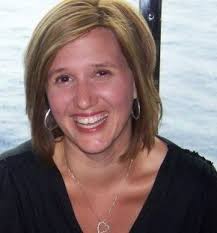A research team from the University of South Florida has launched an ambitious study to better understand the aging brain. Now, they are seeking Villagers to become volunteer research participants.
The study is called Brain Network Activation, B.N.A., and is a partnership of The Villages Health and ElMindA, Inc. – B.N.A.’s original maker. The investigation uses an EEG, or electroencephalogram, to create a 3-D picture of how brains function when responding to different sight and sound stimuli.

“Tools, like B.N.A., will facilitate our ability to identify and manage illnesses like dementia and depression much earlier. As a result, health care practitioners will be able proactively treat their patients before their condition worsens,” said Dr. Carla Vandeweerd, one of the study’s principal investigators and an associate professor at USF’s College of Engineering.
Vandeweerd also serves as director of research for the Villages Health that focuses on health and wellness for Villagers.
At the same time, study volunteers will benefit personally from their participation.
“We will monitor their brain health and provide them with a brief report of our findings at both the halfway mark and after their 12-month assessment.
“Ultimately, we are hopeful that long term findings will enable physicians and patients to better track and understand individual brain health, and could be very helpful in early treatment planning – such as prescribing new or different medications,” Vandeweerd said.
The researchers want to eventually enroll 1,400 volunteers.
“In order to be eligible, they must meet four qualifications: live in The Villages; be between the ages of 50 and 84; speak English; and be able to provide ‘informed consent,’” said Mitchell Roberts, USF’s research site supervisor at The Mulberry Care Center. Volunteers must attend four or five sessions, each two hours long, during the next 15-months.
“Initially, those who are enrolled will complete intensive physical and mental health surveys, a memory screening, as well as a series of simple, computer-based tasks necessary to initially ‘map’ their brain activity,” added Roberts, who also is a doctoral student at USF’s School of Aging Studies.”
Then, the study team will fit the participant with a cap of non-intrusive electrodes that record brain activity. The entire procedure is painless.
“The study is collecting data at the Mulberry and Creekside Care Centers as part of The Villages Health’s ongoing commitment to health and wellness in the Villages community,” said Vandeweerd.
There is no cost to participants, nor is there a charge to Medicare or other third-party health insurance companies. Membership in the Villages Health System is not required as the study is open to all Villages residents.
The study comes at a critical time when Americans are experiencing increased life expectancies that will require the country’s health system to utilize innovative ways of treatment.
“The projected population growth for adults aged 65 and older is unprecedented. Every day for the next 20 years, 10,000 older adults will celebrate their 65th birthday. In 2030, when the last baby boomer turns 65, one in every five Americans will reach that milestone, and by 2050 approximately 89 million Americans will be over 65 – more than double the number of older adults in 2010,” said Vandeweerd.
“This increase translates to more seniors than ever before living with chronic conditions. In the United States, two-thirds of seniors have multiple chronic conditions. Beyond the daily management of chronic conditions, their long-term treatment is placing a burden on America’s health care system. Ninety-five percent of the health care budget for older adults is spent on chronic disease treatment and management.
“Much of healthcare now is reactive. Patients are treated after symptoms significantly manifest and receive a diagnosis. Treatment is then concerned with managing conditions and preventing further health decline.
“Rather, efforts that take a proactive approach – examining ways of detecting early health changes are needed. For example, research has suggested that Alzheimer’s patients may have structural and metabolic brain changes decades before they experience symptoms,” she continued.
“The study’s B.N.A. technology provides a proactive opportunity to understand the aging brain. This ability to detect early changes in brain functioning and learning what disease and pre-disease looks like is a step towards proactive healthcare.
“With more effective management of diseases and their impact on this increasingly vulnerable population, we can improve their quality of life and their health,” Vandeweerd said.
For more information how your invaluable contribution of your time will benefit countless others as well as yourself, contact the study at (352) 247-2493 or villagesresearch@gmail.com. Inquirers are under no obligation, and can withdraw from the study at any time.

